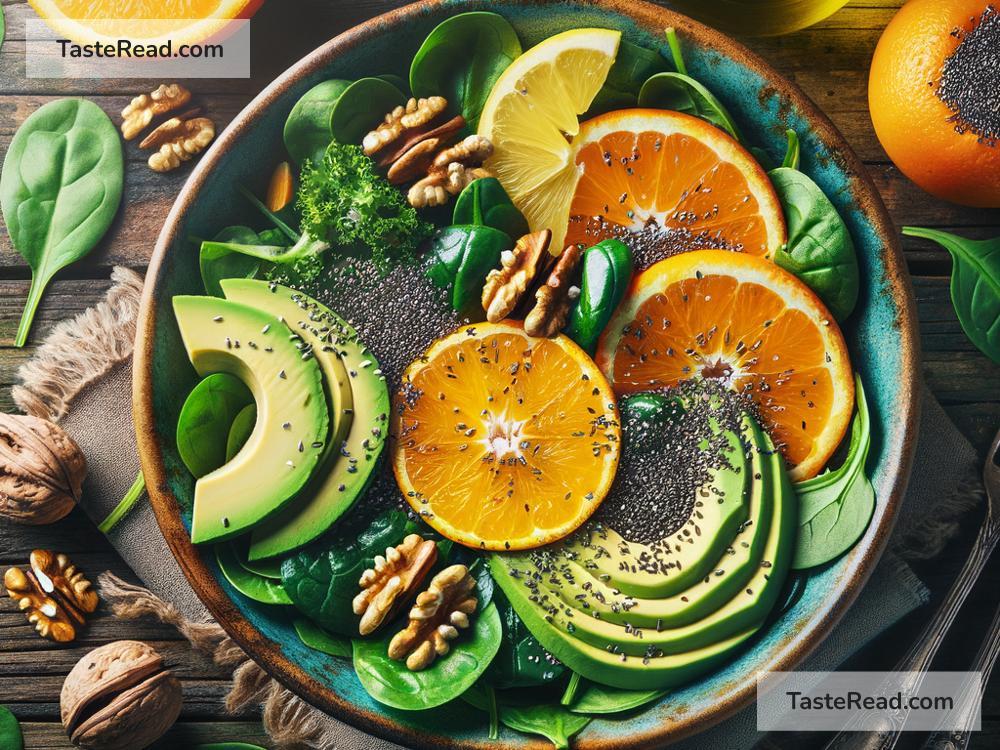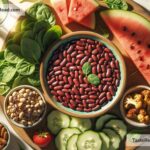Foods That Promote Healthy Connective Tissue
Connective tissue plays a vital role in keeping your body strong and flexible. It’s the part of your body that supports, connects, and holds everything together—from your skin and bones to your muscles and organs. Healthy connective tissue keeps us moving, protects our joints, and ensures our body functions properly. So, what can we eat to support strong and healthy connective tissue? Let’s explore some foods packed with nutrients that promote its health and repair.
Understanding Connective Tissue
Before we dive into specific foods, let’s talk briefly about what connective tissue is. Connective tissue is made up of a mix of collagen, elastin, and other proteins. It includes tendons, ligaments, cartilage, and even fat. These tissues need specific nutrients to stay strong and flexible. If your connective tissue is weakened, you might experience issues like stiff joints, poor skin elasticity, or slower healing after injuries.
Now that we understand the basics, let’s focus on the foods that can boost its health!
1. Bone Broth: Your Collagen Superfood
Bone broth is one of the best foods for supporting connective tissue health. Made by simmering animal bones for hours, this broth is rich in collagen—the most abundant protein in connective tissue. Collagen helps strengthen your tendons, ligaments, and skin.
When you consume collagen through foods like bone broth, your body breaks it down into amino acids (like glycine and proline) that help rebuild your own connective tissues. Drinking bone broth regularly can improve joint health, skin elasticity, and overall tissue repair. Plus, it’s comforting and tastes great in soups or on its own!
2. Leafy Greens for Vitamin C
Vitamin C is essential for producing collagen in your body. Without enough vitamin C, your connective tissue formation could slow down. That’s why leafy greens like spinach, kale, and Swiss chard are excellent for connective tissue health. They’re loaded with vitamin C and antioxidants that protect your tissues from damage.
Bonus tip: Pair leafy greens with foods high in healthy fats (like olive oil or avocado) to boost nutrient absorption.
3. Citrus Fruits for Extra Collagen Support
If you don’t enjoy leafy greens as much, try citrus fruits such as oranges, lemons, grapefruit, and limes. They’re brimming with vitamin C, which helps your body convert amino acids into collagen. Eating just one orange a day can give your body enough vitamin C to keep your connective tissue strong and healthy.
Other vitamin C-rich fruits include strawberries, kiwi, mango, and pineapple. The natural sugars in these fruits also give you energy, while their vitamins help protect your tissues from wear and tear.
4. Protein-Packed Foods for Tissue Repair
Protein is the building block of all tissues in your body, including connective tissue. Foods like chicken, fish, eggs, beef, and tofu are excellent sources of protein that help repair and maintain your tissues. Choose lean meats or plant-based protein options if you’re looking for healthier choices.
Fish like salmon and mackerel are also rich in omega-3 fatty acids, which reduce inflammation and promote joint health—a perfect combo for supporting connective tissue.
5. Nuts and Seeds for Healthy Fats
Healthy fats found in nuts and seeds can be incredibly beneficial for connective tissue. Almonds, walnuts, chia seeds, and flaxseeds are rich in omega-3 fatty acids and vitamin E. These nutrients help reduce inflammation and keep your joints flexible.
Vitamin E also protects collagen and elastin in your connective tissue from breaking down. Sprinkle nuts and seeds onto salads, add them to smoothies, or enjoy them as a snack for an easy way to boost tissue health.
6. Red and Orange Vegetables for Antioxidants
Brightly colored vegetables like carrots, sweet potatoes, pumpkins, and red peppers are rich in beta-carotene, which your body converts into vitamin A. Vitamin A is essential for tissue repair and regeneration. These vegetables also contain antioxidants that protect your connective tissues from damage caused by free radicals.
Roast these veggies or blend them into soups for a delicious way to incorporate them into your diet.
7. Foods Rich in Zinc
Zinc is another important nutrient for connective tissue health. It plays a direct role in collagen production and tissue repair. Foods rich in zinc include shellfish (like oysters), beef, seeds (like pumpkin seeds), chickpeas, and lentils.
Eating zinc-rich foods regularly can help your body heal and strengthen tissues more effectively, making it an important mineral for athletes or people recovering from injuries.
8. Water for Hydration
You might not think of water as a “food,” but staying hydrated is crucial for healthy connective tissue. Connective tissues need plenty of water to stay flexible and lubricated. Without enough water, your joints can become stiff, and your skin may lose its elasticity.
Drink at least 8 glasses of water a day, and eat water-rich foods like cucumbers, watermelon, and celery to keep your tissues properly hydrated.
Conclusion
Your connective tissue deserves as much attention as your muscles and bones. By eating foods rich in collagen, protein, vitamins, and minerals, you can support your body’s ability to strengthen and repair these important tissues. Whether it’s sipping bone broth, snacking on nuts, or enjoying a fresh citrus salad, small dietary changes can make a big difference.
Make these foods a part of your daily routine, and remember to stay hydrated and active for overall tissue health. Your body will thank you with more flexibility, strength, and resilience!


